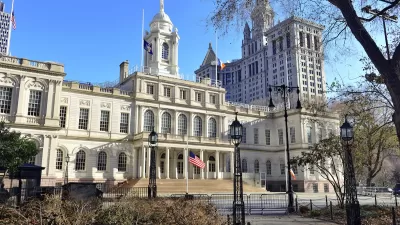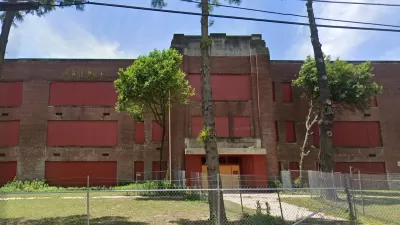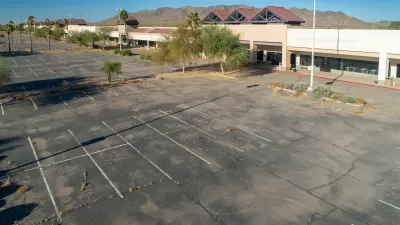The Angus Shops development is a model of urban adaptive reuse, but the residents who moved in the the initial development don't want any more housing added to the neighborhood.
The area where Angus Shops now sits was once an abandoned train works in eastern Montreal. Activist Christian Yaccarini led a plan to redevelop it. "The idea was to repurpose many of the hulking industrial buildings on the site – known as the Angus Shops – and create airy, affordable work and office spaces that would be attractive to new-technology companies, professionals, service providers and other small and medium-sized businesses," Bertrand Marotte writes for The Globe and Mail.
By almost any measure that plan was a success. The site is now home to more than 60 firms in a bustling LEED certified building. Now Mr. Yaccarini is ready for phase two, but some in the neighborhood are against it. "The fears voiced by homeowners in the existing townhouses and condos located across from the public park or just up the street from the new project, run the gamut from falling property values; a dearth of street parking and dangerous rise in vehicular traffic because of the population influx; excessive noise levels; overcrowding and overuse of the modestly-sized park; social tensions; and building heights that will block views of Mount Royal to the west," Marotte reports.
These neighbors, many of whom benefited directly from the development feel that what the neighborhood has now is enough. "'To the people who said, 'We moved to Angus because it represented the suburb in the city,' we replied by saying, 'Sorry, you made a mistake,'" Yaccarini tells Marotte.
FULL STORY: Residents of Montreal's Angus Shops resistant to more change

Maui's Vacation Rental Debate Turns Ugly
Verbal attacks, misinformation campaigns and fistfights plague a high-stakes debate to convert thousands of vacation rentals into long-term housing.

Planetizen Federal Action Tracker
A weekly monitor of how Trump’s orders and actions are impacting planners and planning in America.

San Francisco Suspends Traffic Calming Amidst Record Deaths
Citing “a challenging fiscal landscape,” the city will cease the program on the heels of 42 traffic deaths, including 24 pedestrians.

Defunct Pittsburgh Power Plant to Become Residential Tower
A decommissioned steam heat plant will be redeveloped into almost 100 affordable housing units.

Trump Prompts Restructuring of Transportation Research Board in “Unprecedented Overreach”
The TRB has eliminated more than half of its committees including those focused on climate, equity, and cities.

Amtrak Rolls Out New Orleans to Alabama “Mardi Gras” Train
The new service will operate morning and evening departures between Mobile and New Orleans.
Urban Design for Planners 1: Software Tools
This six-course series explores essential urban design concepts using open source software and equips planners with the tools they need to participate fully in the urban design process.
Planning for Universal Design
Learn the tools for implementing Universal Design in planning regulations.
Heyer Gruel & Associates PA
JM Goldson LLC
Custer County Colorado
City of Camden Redevelopment Agency
City of Astoria
Transportation Research & Education Center (TREC) at Portland State University
Jefferson Parish Government
Camden Redevelopment Agency
City of Claremont





























